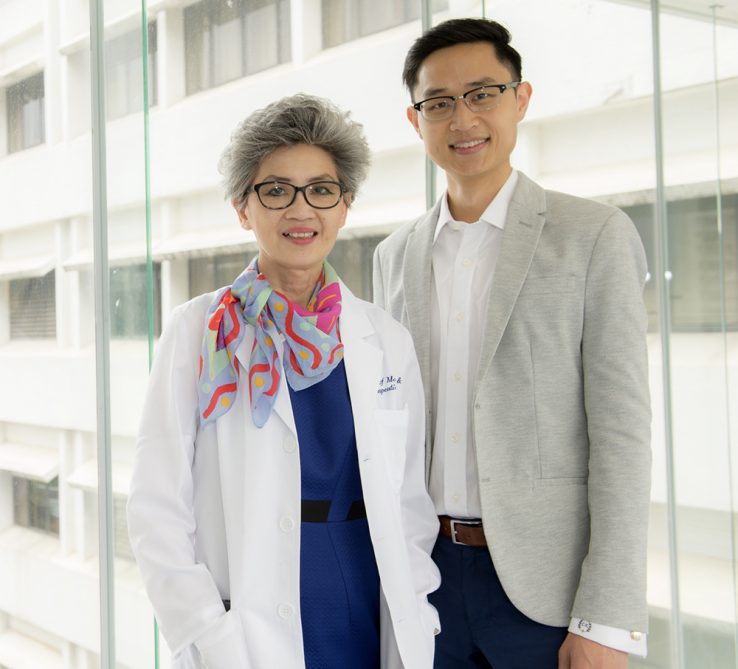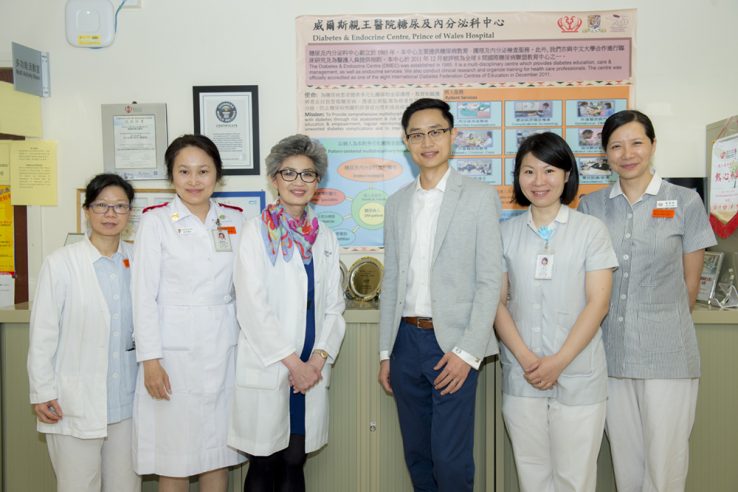
Once thought of as a disease that only affected older adults, diabetes is now being diagnosed increasingly in young people under the age of 30, and the implications of this have yet to be fully studied.
“It is a global phenomenon occurring not just in Canada, but also in places like Hong Kong and India,” said Calvin Ke, an endocrinologist and a clinical epidemiology PhD student at the Institute of Health Policy Management and Evaluation (IHPME).
Ke is in the process of completing a three part international PhD project looking at the rising rates of diabetes in South and East Asian populations in Toronto – the world’s most multicultural city – and in India and Hong Kong. It is a unique approach that combines data from international partners to develop new insights into the management of the disease that have yet to be discovered.
“Ke’s PhD research is a wonderful blend of clinical epidemiology and global health. I suspect his findings will tease out and tremendously advance our understanding of influential factors on patient and population outcomes with respect to this disease,” said Dr. Rob Fowler, program director of the clinical epidemiology program at IHPME.
The first part of Ke’s project took him to India, where he worked with renowned epidemiologist Prabhat Jha to determine how diabetes increases the risk of mortality from heart disease and stroke. While in Hong Kong, Ke has been researching the rising rates of hospitalizations among young people with diabetes, under the guidance of Dr. Juliana Chan, a leading diabetes researcher in China.
“Diabetes is a global epidemic that cannot be fully addressed by one country alone, “ said Chan, “over the last 2 decades, we have been building a collaborative international diabetes management and research platform that includes over 80000 patients spanning 13 countries across Asia. These efforts are an essential first step to managing the global diabetes epidemic, and they necessitate the coordinated involvement of many international researchers.”
“This is a big change from previous decades,” adds Ke, “We are learning more and more about what happens to people when they get type 2 diabetes at such a young age, and we urgently need to develop better solutions for young people facing this growing epidemic on a global scale.”
Ke’s supervisor and associate professor at IHPME Baiju Shah agrees, “The impact of diabetes onset at younger ages is particularly concerning, since these individuals will be living with chronic disease for a longer part of their lives.”
A combination of factors, from genetic predisposition, to rapid economic development, and food abundance are thought to be contributing to the rates of earlier diagnoses. Add in a sedentary lifestyle, and you have the perfect recipe for the development of this chronic condition.
Data that Ke is studying has also shown that young people with diabetes are being diagnosed and hospitalized for further complications of the disease, such as kidney disease and heart attacks. Each hospitalization costs the health system and the economy in terms of lost wages and productivity to society, but there is also an indirect cost placed on the families and caregivers of patients.

“One of our main goals is to reduce the rates of hospitalization, and help those diagnosed better manage their condition over the course of their life, by improving their knowledge of the disease,” said Ke.
Better recognition from health care providers about the level of risk associated with type 2 diabetes at a younger age is also needed.
“While many assume that youth confers good health, we need to understand that this is not true when it comes to young people with diabetes. In fact, we found that the overall risk of suffering complications is actually higher for young people, because they are exposed to diabetes for a much longer period of time,” said Ke.
An international experience like this has added an interesting perspective to Ke’s research, and has allowed him to integrate data from three different countries in a meaningful way. “Studying how diabetes affects people in different global contexts reveals unique aspects of this complex disease. Each study adds an important piece to the puzzle, and lessons learned in one country can be incredibly valuable to informing interventions in other settings,” he said.
As it becomes more important to have an international research network, Ke highly encourages other students to think about the global aspects of the projects they are working on.
“I didn’t know coming into my graduate studies that my work would look like this, but to see it come together and to reflect on it, it’s quite amazing.”
Related News

Sign up for IHPME Connect.
Keep up to date with IHPME’s News & Research, Events & Program, Recognition, e-newsletter.
Subscribe to Connect Newsletter
Get in Contact
Communications
Marielle Boutin
Email Address: ihpme.communications@utoronto.ca





